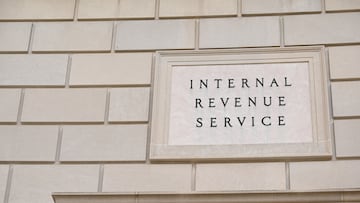Tax inflation adjustments for tax year 2025: What you need to know to maximize your refund
While the percentage of tax per bracket remains the same as last year, inflation means the amounts in these brackets has changed.

Every year the Internal Revenue Service (IRS) adjusts the earnings amounts for each of the tax brackets to account for inflation during the year.
The seven brackets remain the same next year 10%, 12%, 22%, 24%, 32%, 35% and 37% which were set after the 2017 Tax Cuts and Jobs Act. These will be in place through the 2025 fiscal year, after which time, with no Congressional action, the tax rate will increase for all except the lowest.
The annual adjustment is designed to avoid “bracket creep” when people are pushed into a higher income bracket or inflation reduces the value of other deductions or credits. So, for example instead of 10% being applied to the first $11,600 of income as in 2024, it will now be applied to the first $11,925 for a taxpayer filing individually for earnings in 2025.
| Tax rate | Single filers & Married Filing Seperately | Married filing jointly |
|---|---|---|
| 37% | for incomes over $626,350 | for incomes over $751,600 |
| 35% | for incomes over $250,525 | for incomes over $501,0150 |
| 32% | for incomes over $197,300 | for incomes over $394,600 |
| 24% | for incomes over $103,350 | for incomes over $206,700 |
| 22% | for incomes over $48,475 | for incomes over $96,950 |
| 12% | for incomes over $11,925 | for incomes over 23,850 |
| 10% | incomes of $11,925 or less | for incomes of $23,850 or less |
To help taxpayers determine which filing status applies to them the IRS has an online tool “What Is My Filing Status?”
Changes for tax year 2025
Related stories
The tax brackets explained above are for taxes to be filed in 2026. It is useful information for tax payers to have and understand during this fiscal year. The adjustments are made annually according to inflation and have progressively increased over time.


Complete your personal details to comment